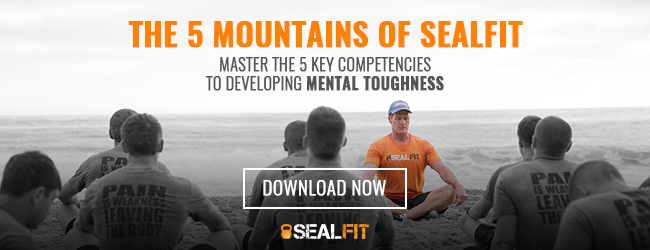Goal Setting Tips: 5 Common Mistakes and How to Avoid Them
We’ve all been there. You start out on a new project with the wind at your back and a spring in your step, with no reason to expect you won’t end up exactly where you dreamed you’d be. Then something goes wrong. Whether it’s a major catastrophe that puts your goal forever in the horizon or a barely noticeable hiccup that snowballs into a permanent derailment, the high ambition you started don’t even resemble the results you managed to come up with.
The culprit, it may surprise you to learn, often isn’t found in the muck and mire of getting things done. As often as not, it was your actions on the bright and sunny day you set out on your adventure that doomed you to failure. Failing to calibrate your goals to human nature’s way of accomplishing them (and to being true to yourself) makes it very unlikely you’ll get them done, no matter how motivated you are throughout the process.
The SMART Goal Framework
Developed in 1981 by businessman George T. Doran, the SMART framework is five-point objective-setting guide for every avenue of life. SMART goals are Specific, Measurable, Achievable, Realistic, and Timely. Obviously, then, goals that don’t get achieved typically fail one or more of these criteria. Let’s take a look at some common mistakes, and discuss how to avoid them with these tips on goal setting:
- Lack of Specificity
Without knowing exactly what you’re chasing, there’s not much of a chance you’ll catch it. While a lofty ideal might feel good, you can’t be more than who you are if you can’t give hard and fast rules of what achieving it will look like. Working at some vague statement of what you want will only make you feel like a failure, not because you didn’t try but because you didn’t give yourself a real chance to win.
Say, for instance, your “goal” is to get in shape. That’s great. Which of the millions of stations at thousands of gyms are you going to use for that? Instead, make your goal to be a faster runner or stronger lifter, or better yet, an 8-minute mile or a bodyweight bench. (Adjust those numbers up or down as necessary.) From there, you’re just a few minutes’ work from a plan that works.
- No Method of Measuring Progress
Even if your goal meets every other criterion, if you’ve left yourself no way to track how you’re doing, you’re at serious risk of spinning your wheels. Remember that SMART goals are time-specific “What I’m doing isn’t getting me where I need to go” is something you need to know now, because every second you spend not making progress decreases your chances of ultimate success.
One of my most important tips on goal setting is that the line between achieving and not achieving your goal should be clear and objective. That way, you can stop and evaluate at any point to make sure you’re on the right path and making the right amount of progress.
- Setting Goals out of Your Control
Sure, it would be great to be employee of the month or year. The only problem is, you don’t control whose picture goes up at the front of the office. Even in the best workplaces, executives with differing priorities and office politics dictate the impressions of supervisors and employers.
Don’t let others decide how you’ll feel at the finish line. Instead, set your sights on leading the team in sales or your work’s relevant metric (or better yet, meeting a number that would have the same effect). Your planning and effort, not the opinion of others, are what should inform your results.
- Not Being Realistic
It happens way more often than you think: someone sets out to run a marathon. He or she buys an expensive pair of shoes, Googles a program, works out time on their schedule, pays the registration fee to motivate themselves. Three months in, on a cold, windy night, the cold, hard truth comes in: they don’t like running.
Goals that don’t match where you’re coming from aren’t going to work for you. Even if the love of your pursuit is there, the goal may not fit your lifestyle. Nothing says you can’t get off a 12-hour shift and write a novel, but that’s a tall order for most people. You won’t join the 1,000-pound club 60 days after stepping in the gym for the first time in a decade. And even if you do love running, qualifying for Boston six months after ACL surgery would require a Nobel-Prize-level medical miracle.
Build your goals for who you are and where you are, and be humble enough to admit both things. The moon will still be there when you’re ready to shoot for it.
- Not Including a Deadline
It can be tempting not to put yourself on a deadline. You might not know what your future schedule will look like. You may be afraid of what the pressure will look like. Don’t let yourself fall into the trap.
Goals without a deadline tend to become dreams deferred, always one life event or another away from serious pursuit. If you’re worried about the crushing pressure of an impending due date, you’ve likely set an unrealistic goal. Once you’ve calibrated your goals to reality, commit them to reality by confidently stating when they’ll be accomplished. A well-set deadline, rather than intimidating you, can motivate you through the tougher stretches: you know for a fact when it will all pay off and you’ll be standing on the mountaintop.
Don’t worry about feeling trapped by unforeseen circumstances, either. If something comes up that makes your original deadline unrealistic, you can always reset the deadline to something achievable.
Leave a Reply cancel reply
You must be logged in to post a comment.





No Comments